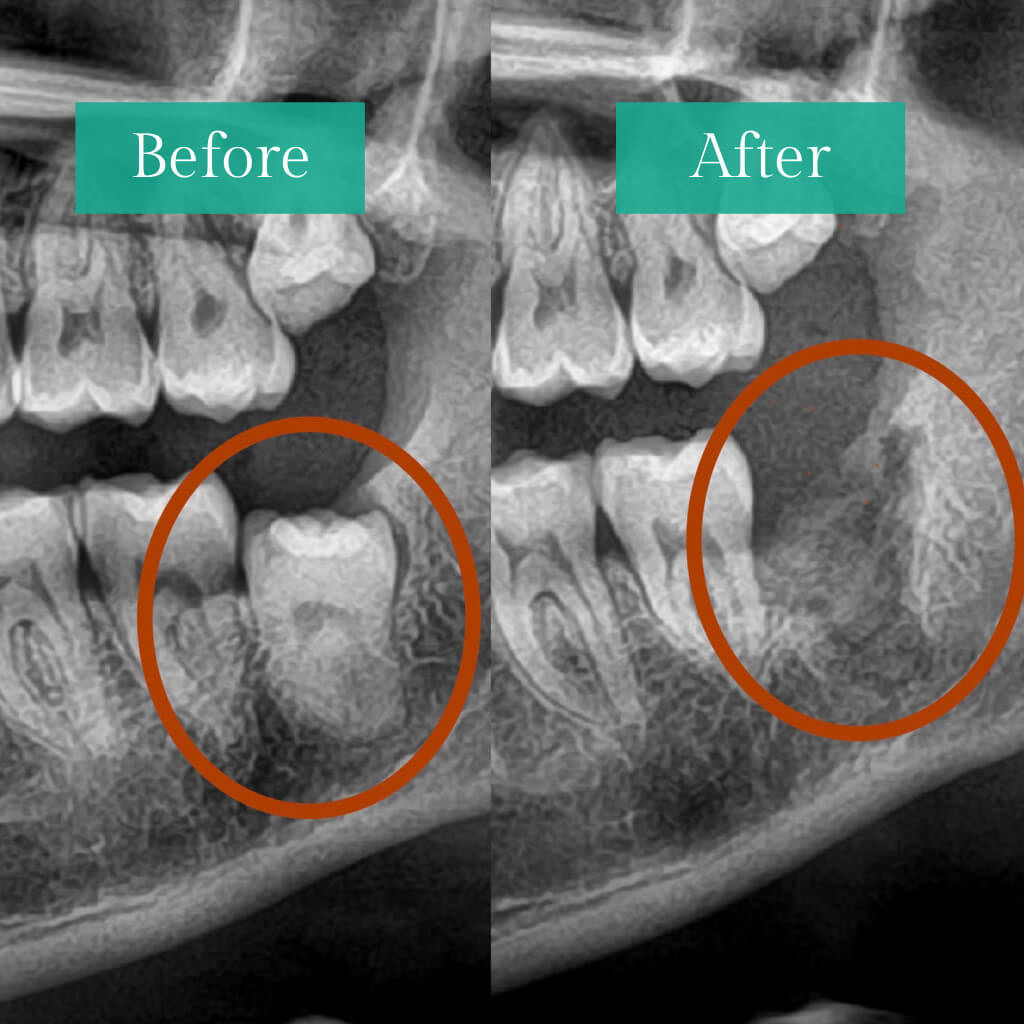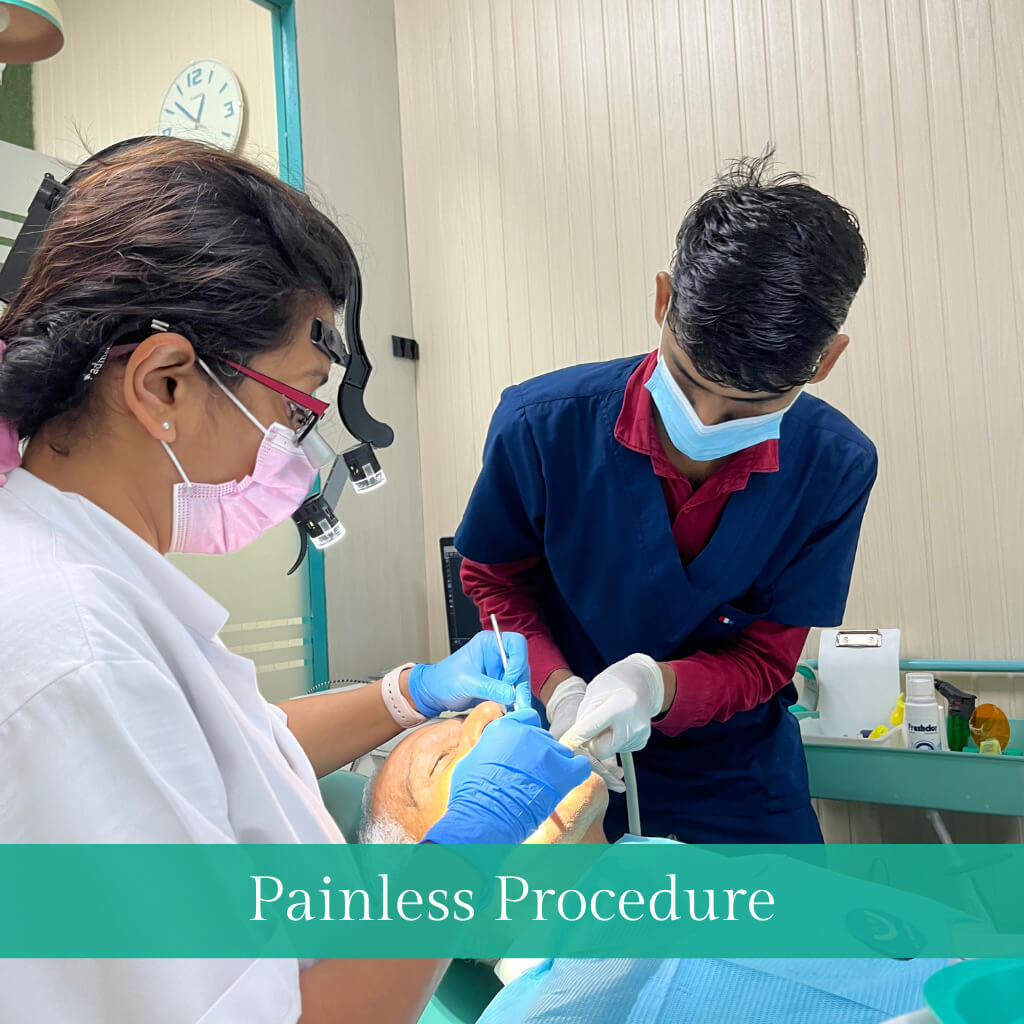Debunking Myths About Wisdom Teeth Removal
Who hasn’t heard the myths surrounding wisdom teeth: wisdom teeth always grow in at a certain age, their removal is always painful, they're always impacted, and they're a sign of wisdom.
But don't believe all that comes to your ears! Wisdom teeth removal doesn't have to be painful; it's not always necessary, and it doesn't cause other teeth to become crowded.
Let's debunk the myths and get the facts on wisdom teeth removal.
Key Takeaways
- There is no set age for when wisdom teeth come in, and they are usually in the mouth between ages 17 and 25 but may appear at a later age, too.
- Wisdom tooth extractions are recommended for high-risk dental problems and can prevent more serious complications in the future.
- Not all wisdom teeth are impacted, and pain is not always experienced in association with wisdom tooth eruption.
- Wisdom teeth removal isn't always necessary and depends on the individual's case and tooth position.
Myth 1: Wisdom teeth always grow at a certain age.
Fact: Wisdom teeth, also known as third molars, typically start erupting during the late teens to early twenties, but the exact timing can vary widely among individuals. Some people may experience the eruption of their wisdom teeth in their late teens, while others might not see them emerge until their early twenties, and some may never develop them at all. This variation is due to factors like genetics, diet, and overall dental development.
Myth 2: Wisdom teeth are unnecessary remnants of evolution.
Fact: Wisdom teeth, from an evolutionary perspective, served a purpose for our ancestors, who had larger jaws and a diet that consisted of tough, unprocessed plant materials. These additional molars helped with grinding and breaking down such foods. However, as human diets have evolved and jaws have become smaller, wisdom teeth are often considered unnecessary. Nevertheless, their removal or retention depends on individual circumstances, such as their impact on oral health.
Myth 3: Wisdom teeth are always impacted.
Fact: Wisdom teeth can exhibit a range of conditions when they erupt. Some individuals have wisdom teeth that grow in fully and function as regular molars. Others may experience partial impaction, where the teeth partially emerge, and there are also cases of complete impaction, where the teeth do not emerge fully from the gum line. Impaction or lack of complete eruption of teeth is a common but not universal occurrence.
Myth 4: Wisdom teeth extraction is always a painful and traumatic experience.
Fact: Wisdom teeth extraction experiences can vary widely among individuals. Some people undergo the procedure with minimal pain and discomfort, while others may experience more intense pain and swelling. The degree of pain and trauma depends on factors such as the complexity of the extraction and an individual's pain tolerance. Dentists can provide appropriate pain management and aftercare instructions to minimize discomfort and promote healing. With advanced machinery, wisdom tooth removal is almost painless, and post-operative discomfort is also minimal and manageable with analgesics.
Myth 5: All wisdom teeth need to be removed.
Fact: Not everyone requires the removal of their wisdom teeth. Whether or not to extract them depends on several factors, including the position of the teeth, their impact on oral health, and an individual's unique dental circumstances. Some individuals may keep their wisdom teeth without any issues, while others may need them removed due to pain, infection, or other dental problems.
Myth 6: You should avoid eating solid foods for weeks after wisdom teeth removal.
Fact: While it's advisable to consume soft foods in the period immediately after wisdom teeth removal to avoid damaging the surgical site, most individuals can gradually transition back to a regular diet within a few days. Following your dentist's post-operative instructions, including proper hygiene and dietary guidelines, helps ensure a quicker and smoother recovery.
Myth 7: Wisdom teeth cause crowding of the other teeth.
Fact: The idea that wisdom teeth are solely responsible for dental crowding is a misconception. Dental crowding is often due to genetic factors, changes in jaw development, and other oral health conditions. Removing wisdom teeth does not prevent or alleviate crowding issues. Orthodontic treatments, if necessary, are better suited to address crowding concerns.
Myth 8: You can't get cavities in your wisdom teeth.
Fact: Wisdom teeth, like other teeth, are susceptible to dental cavities. Their placement at the back of the mouth can make them challenging to clean, thus increasing the susceptibility to cavities and other oral health issues. Regular brushing, flossing, and dental check-ups are essential to prevent cavities in wisdom teeth and maintain good oral health.
Myth 9: You should avoid brushing your teeth after wisdom teeth removal.
Fact: Proper oral hygiene is crucial after wisdom teeth removal. You should continue brushing your teeth, but you must be gentle and cautious around the surgical area to avoid dislodging any stitches or irritating the extraction site. Specific instructions for maintaining oral hygiene during the recovery period will be given to you by your dentist or oral surgeon.
Myth 10: Wisdom teeth are a sign of wisdom.
Fact: The name "wisdom teeth" is a historical misnomer and has no connection to wisdom or intelligence. The emergence of these molars is simply a biological event unrelated to an individual's intellectual or emotional development. The term "wisdom teeth" is used because they usually emerge during adulthood, a time when individuals are thought to have accumulated more wisdom and life experience. However, this is purely a colloquial term and not based on scientific or medical criteria.
FAQ’s
Conclusion
In conclusion, debunking the myths surrounding wisdom tooth extraction highlights the importance of understanding this common dental procedure. At Hope Dental & Esthetic Clinic in Noida, patients can receive expert guidance and care tailored to their unique needs. Recognizing the importance of understanding that the necessity for wisdom tooth removal can differ from one individual to another, it's important to note that the procedure doesn't necessarily have to be a painful or distressing experience.
Dispelling these misconceptions and seeking expert guidance empowers individuals to make well-informed decisions regarding their oral health, thus ensuring a smooth and comfortable recovery journey. So don't be fooled by myths and exaggerations - get your wisdom teeth removed and enjoy life to the fullest!




